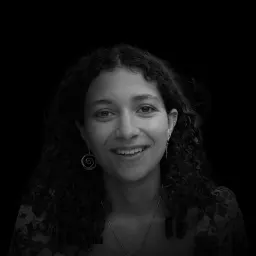Objectivity and balance are some of the buzzwords that you come across the most as a journalist. And yes, no doubt, they are important. But what is widely known but yet underplayed, is the fact that journalism is an elitist industry full of many privileged people who are less likely than many to be damaged by platforming problematic people.
As someone who has just completed their master’s in journalism from a top UK university, I am well aware of the privilege and opportunities that my education has afforded me. Yet, as a mixed-race woman from a working-class background, I am well attuned to the problems facing different marginalised groups in this country.
This time last year I was about to embark on a completely new educational experience, a different degree from a different university. I was moving from Lancaster to a diverse city to complete my postgraduate studies and although that meant moving from a small city to a larger, diverse city, I was exposed to much more right-wing and liberal, fence-sitting viewpoints than I ever had been during my history degree at Lancaster.
The first thing that I noticed about the MA Journalism course is how much of the staff very much gear everyone towards the traditional journalism route - to be a newsreader on the BBC or a reporter at the Daily Mail. For me, I was always more interested in feature writing, discussing ideas around culture, diversity and identity - all topics which are most likely found in magazines or in certain sections of the Guardian. And I can't help but think that it usually is individuals from marginalised groups that are most keen to explore these kinds of topics because they are the articles that hold society to account.
I never thought I would have to sit in a seminar with someone who thought that taxation punishes the hard-working rich. Or hear heterosexual people say that it’s easy to be gay in a society that has to accept you these days. In my eyes, these views were so short sighted and came from people who had never actually listened to the voices of minorities. I was in retrospect very naïve.
It’s one thing to share your opinions on matters affecting marginalised groups of people. But what is often more frustrating is the argument that we, as journalists, must see everything from both sides. It was always certain groups of people who proudly said they could see both sides of a controversial issue affecting an oppressed minority, be that ethnic minorities or LGBTQ+ migrants. And why, because they have had it drummed into them by outdated journalistic practices and the established people in the industry that still back them, that this is the way to be a good journalist. Seeing as they were most often privileged enough not to be offended or affected by bigoted attitudes, they never saw beyond their own viewpoint to consider the communities that bigots harm. It’s all well and good providing a space for both sides of an argument, as long as one side isn’t overtly detrimental to minorities.
Journalism that cares as well as knows; that is aware of its responsibilities; that will not stand neutrally between good and evil, right and wrong, the victim and the oppressor.
I believe that this understanding from Bell is vital to good quality, morally sound journalism. How is it ever right to platform destructive viewpoints in the name of objectivity?
Written by
LouisaJournalist interested in culture, identity and empowering the narratives of those often overlooked in society.
Read next
Your class still matters, and criminal justice shows it.

Sasha Lyon
Is it time men stay in their lane?

Hannah Leslie
"Lad Banter" Where do we draw the line?

Lauren Chadwick
Weekly emails
Get more from Louisa
The Fledger was born out of a deep-seated belief in the power of young voices. Get relevant views on topics you care about direct to your inbox each week.
Write at The Fledger
Disagree with Louisa?
Have an article in mind? The Fledger is open to voices from all backgrounds. Get in touch and give your words flight.
Write the Contrast

